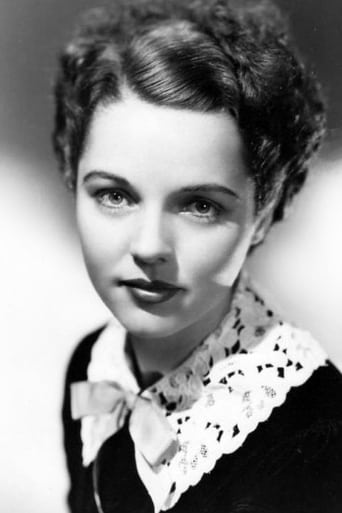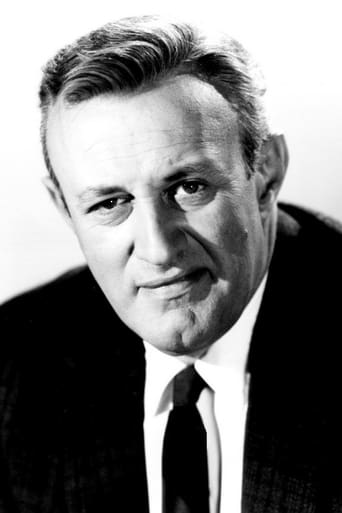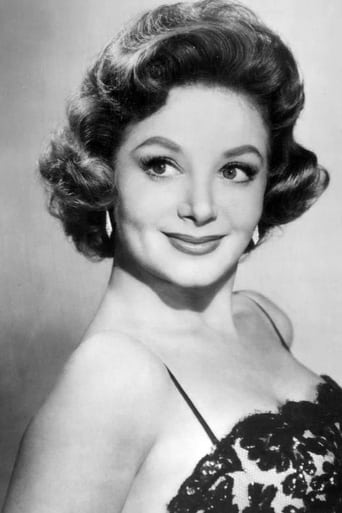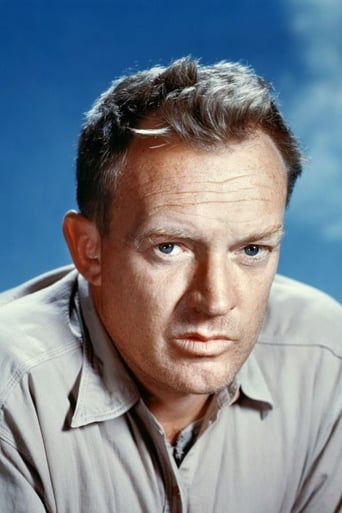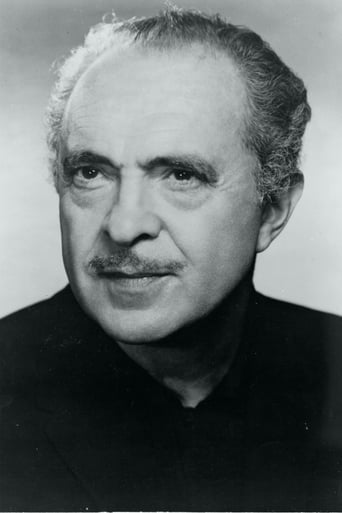Geraldine
The story, direction, characters, and writing/dialogue is akin to taking a tranquilizer shot to the neck, but everything else was so well done.
Alex da Silva
No idea what the title of this film means. The film is based on a true story about the killing of a priest. The police needed to get a conviction for political motivations and a culprit was identified - an ex-army wanderer Arthur Kennedy (Waldron). However, did he actually commit the crime? Dana Andrews (Harvey) is the prosecutor tasked with convicting him.There are a lot of characters singing from the same page in going for a conviction and handing out the death penalty to Kennedy. The film actually starts quite slowly and we keep getting a narrator unnecessarily blabbing on and on. Things pick up with the appearance of Kennedy and it helps that the film is relating a true incident. It all ends in the courtroom scene which will keep you watching as Andrews maintains the tension with his unorthodox approach. The film satisfies in that it also provides an update at the very end as to how things pan out for a couple of characters.It's an ok film with a good cast - detective Karl Malden (White) isn't even credited. He's there along with police chief Lee J. Cobb (Robinson) and director Elia Kazan, all of whom would reunite for the classic "On the Waterfront" (1954) with Marlon Brando.
romanorum1
A beloved Protestant Episcopal minister, Father George Lambert (Wyrley Birch), is shot to death at night while lighting his pipe on a city street. A man in a white hat and a dark trench coat runs away. In brief flashback we see several kooks who may be the murderer. After many days there is no break in the case as the political pressure intensifies and the local citizen's committee demands action. State Attorney Henry Harvey (Dana Andrews) and Police Chief Robbie Robinson (Lee J. Cobb) feel the heat. Police Commissioner James (Ben Lackland) perturbs Robinson, who threatens to quit. There are also those politicians who want Harvey to look badly. Trying to ridicule the reform administration currently in power, the local newspaper ("Morning Record") screams a headline: "Report Police Dept. Under Fire From State House." The same newspaper runs editorial cartoons about the blind leading the blind. Finally a vagrant who possibly matches a sketchy description is picked up in Ohio and extradited to Connecticut. He is identified in a police line-up by several witnesses. Under an intense and grueling two-day interrogation by such folks as Detective Lt. White (Karl Malden), the man (John Waldron = Arthur Kennedy) cracks and confesses to the crime. Ballistics tests say that the bullet lodged in Father Lambert's brain came from Waldron's handgun. It appears to be an open and shut case.But when Harvey speaks to Waldron behind bars, he begins to have doubts about Waldron's guilt, even though the suspect is angry and unstable (and, as we have seen, had an altercation with the priest earlier). Harvey remembers the Lawyers' Code of Ethics that justice is more important than conviction. Consequently, at the indictment hearing, although the state attorney lays out a course that appears leading to a deposition of guilt, Harvey in fact states that the suspect is innocent ("nolle prosequi"). The courtroom erupts, immeasurably displeasing the judge, who is also unhappy with Harvey, as is Robinson. The judge, believing that Harvey is being pressured by political chicanery, warns about possible malfeasance and disbarment. Harvey is risking his reputation. There is another angle. Paul Harris (Ed Begley) wants a conviction so that his party will be assured of an election victory. Harris owns the Sunset Realty Company, which is trying to sell ten acres of land to the city for the charitable Project for Recreational Center (for children). If his party does not win the election, the city will not approve of the purchase and Harris will be financially ruined. Complicating matters is that Harvey's dutiful (and attractive) wife, Madge (Jane Wyatt) is an altruistic volunteer Chairman of the Project. Although she is not privy to the schemes of Harris, he threatens to implicate her; it will look bad in the newspapers. Harris even pulls out a handgun and threatens Harvey (Yikes, only in Hollywood!). On the second day of the indictment session, Harvey requests that he call in witnesses, not prohibited but unusual. He shows the inconsistencies of the statements of the witnesses, with at least one with an agenda. Harvey also demonstrates that the police ballistics testing was incorrect. Seeing his ruin, Harris takes out his handgun and commits suicide. Case dismissed. The newspaper reads: "Waldron Freed" and "Harvey Exonerates Murder Suspect." Meanwhile a possible suspect perishes in an automobile crash. By the way, the case was never solved.The movie was based upon the murder of a popular Catholic priest (not a Protestant minister), Father Hubert Dahme, in 1924 in Bridgeport, Connecticut. That case too was never solved. As Bridgeport would not cooperate with filming, the movie was shot in nearby Stamford. It is interesting to note that the state attorney (Homer Cummings, a Democrat) on that case became the nation's attorney general in the Roosevelt Administration. Ably directed by Elia Kazan, this realistic and hard-hitting drama is one of the best films of the year. Dana Andrews, an intense actor, stars as a lawman with a deep conscience. Jane Wyatt, whose career began in the 1930s, would later star (as Margaret Anderson) with Robert Young in the popular "Father Knows Best" TV series (1954-1960). Top portrayals were also delivered by proved performers Arthur Kennedy, Lee J. Cobb, Ed Begley, and Karl Malden.
Claudio Carvalho
In Connecticut, a well-known priest is murdered by a man on the street and flees. The politicians and the police are pressed by the society to find the killer, but the Chief of Police Harold F. "Robbie" Robinson (Lee J. Cobb) has no clue despite the witnesses. When the former soldier John Waldron (Arthur Kennedy) that has fought in the World War II is captured in another town, the witnesses identify him as the killer and he is forced by Robbie and his men to sign the confession of murder. The he claims innocence, but everybody believes he is the killer. However the righteous State's Attorney Henry L. Harvey (Dana Andrews) finds inconsistent evidences and decides to investigate against the opposition of the politics and the society."Boomerang !" is a film based on a true story about the morality and honesty of a State Attorny that risks his career to prove that a man is innocent and scape goat of a political situation. The plot is engaging and holds the attention of the viewer. It is beautiful to see the story of men like the lead character that faces the Powers That Be to keep his ethic and principles. My vote is seven.Title (Brazil): "O Justiceiro" ("The Righteous Man")
rjg727
The picture was based on a case involving Homer S. Cummings, a former Mayor of Stamford, CT and one our greatest Attorney-Generals. He served under FDR in the 1930's and created a strong criminal justice arm of the Department of Justice. I saw the film more than 50 years ago and watched it again the other evening on Turner Classic movies. The cast is excellent and I had the distinct pleasure of meeting Dana Andrews when he visited Boston University in the mid 1960's. He was always a very serious actor and was wonderful in "The Best years of Our Lives," and "Laura."Richard J. Garfunkel Host of the Advocates WVOX 1460 am radio New Rochelle, NY



